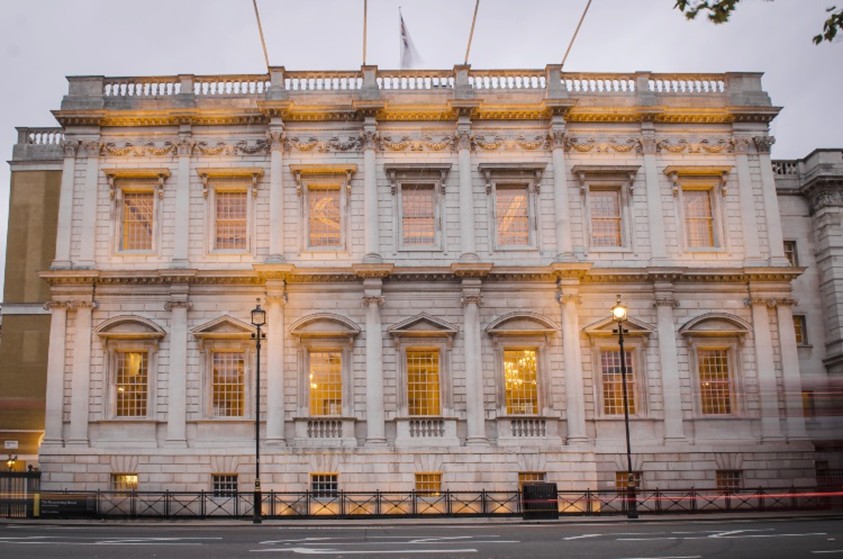At the recent “Now and England” conference organised by the Roger Scruton Legacy Foundation in Westminster, the first panel of the day explored “England’s Cultural Catacombs”. One speaker on this illustrious panel was Ed West, author of the highly popular Substack, Wrong Side of History.
Enjoy independent, ad-free journalism - delivered to your inbox each week
The Roger Scruton Legacy Foundation is forward thinking. Many conservative events and writers revel in the past, but without offering new ideas and practical solutions. Ed West is a leading example of how conservatives should not merely complain about the woes of society, but act. At the end of his speech West advertised his Canon Club: “a club where people go to learn about the great writers, musicians, artists and poets of western civilisation”.
As a big fan of Harold Bloom and shamefully undereducated in most aspects of Western civilisation – the same as everyone, lest some people not admit – I was intrinsically drawn to the idea, and had actually bought my ticket before attending the Scruton conference. As a recent university graduate, opportunities to engage so openly with the Western canon in an enthusiastic manner are rare. Speaking positively about the Great Men of History marks one out as fresh fodder for conservative witch-hunting.
The salon itself was held in the upstairs room of a pub in East London. Dr Alexander Lee was the speaker for a talk entitled “Palladio: Building the Renaissance”. Andrea Palladio (1508 — 1580) was an architect working in Italy, and influenced by Roman and Greek design. His writings, contained within The Four Books of Architecture (1570), revolutionised architectural design through the attention he placed on proportion and symmetry, and the accordant harmony. His stamp on Western cities is apparent throughout, as direct expressions, neo-Palladian styles, or reactionary products.

The Banqueting House, Whitehall, London. Designed by Inigo Jones in a Palladian style (1619—1622). Notice the Corinthian and Ionic columns and symmetrical façade.
Knowledge of almost any aspect of Western civilisation illuminates the present, in both expected and unexpected ways. Ideas expressed in architecture, for example, have parallels in music and visual art, and their classical terms pepper our everyday vocabulary. Defence of the Western cultural tradition is fundamental to both present identity and future survival. Politics is downstream of culture.
The major tension of Lee’s talk was maintaining a balance of focus between Palladio and the political. The group had gathered due to West’s mission, whose Substack declares its counter-cultural intent as politically conservative commentary on history. The driving force of the Canon Club was to provide a physical gathering place for this Substack community, united by belief in the value of the Western canon and concern that knowledge of its rich history could be lost.
This tension speaks to a wider problem within academia. Real research – the trawling of the archives, travelling to distant libraries just to double check a reference, and the editing and re-editing of articles upon which few eyes will glance – is painfully slow. Months, years can be spent as a hermit. In contrast, political commentary is fuelled by adrenaline. On either side, simply engaging in culture-war debates feels like progress is being made. Fighting spirit energises the room.
Distracted by the allure of cultural jousts, it is all-too-easy to be tempted away from the groundwork. West’s Canon Club makes up for this deluge. It can be difficult to grapple with a new area of knowledge; I had only heard of Palladio, and admittedly never given him proper thought, but I found myself captured in a humid room listening to an hour-long lecture about this Renaissance architect.
Lee made frequent reference to the city we traverse today. Architecture is visual history – a physical embodiment of classical values that we move both past and through. Knowledge of the masterminds behind continually relevant styles – even if we were to only learn of modernist rebellions, such as the developments of Le Corbusier – provides the calming assuredness of identity. Scruton would pen this under his concept of oikophilia:
Human beings, in their settled condition, are animated by oikophilia: the love of the oikos, which means not only the home but the people contained in it, and the surrounding settlements that endow that home with lasting contours and an enduring smile.
– Roger Scruton, How to be a Conservative
Conversation is central to the Canon Club, and the audience is integral to its communal spirit. There is joy in people coming together in acknowledgement of their own ignorance, combined with a hunger to deepen their knowledge. Subsequent drinking sessions in the pub serve to strengthen connections, as laughs shared over cigarettes and pints seem to be a fitting development of Western culture, a patriotic sensibility lovingly captured in the fictional idyll of George Orwell’s Moon Under Water. New faces widen my sense of community, while bumping into familiar faces deepens it.
Since attending the Canon Club, I have found myself mentioning Palladio in conversation on several occasions, whether talking to artists – such as the talented J.G. Fox whose work includes architectural drawings – or contextualising modernist public sculptures set on historical buildings.
Don’t me wrong, there were the expected teething problems of newly-launched events – an unbearable temperature in the room, disruptive police sirens, and mischievous technological mishaps – but these are irrelevant to the content and purpose. At the Canon Club, brilliant minds enliven the building blocks of Western culture for just a cheap ticket. It is a soul-enhancing construction, where harmonicity flows in waves of convivial discussion.
In the spirit of Mr Spectator – the anonymous observer of nineteenth-century London life – I am channelling my socialite self in testing so-called countercultural events around the UK, raising awareness in the hope that readers will attend them or be inspired to establish their own networks. Suggestions welcome.

Comments (0)
Only supporting or founding members can comment on our articles.